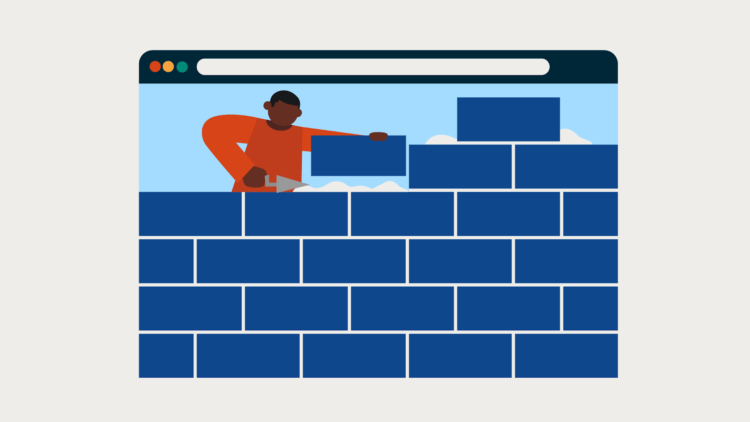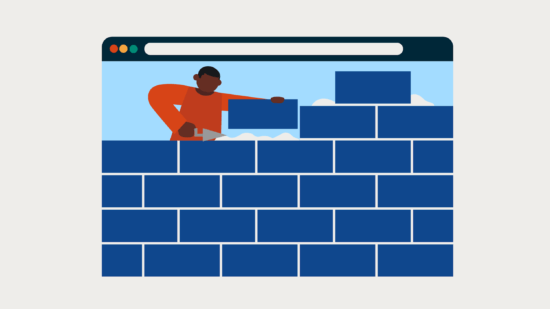Data is everywhere. And as it continues to grow in our increasingly digital world, so does the risk that it’ll fall into the wrong hands.
The threats to the security of data appear to be at an all-time high; according to the ABA’s 2021 Legal Technology Survey Report, 25% of law firms reported that their firm had experienced a security breach at some time.
Data privacy is more than just a business issue—lawyers have an ethical obligation to safeguard client information which is why continuously staying up-to-date on data privacy is so crucial.
Continuing legal education (CLEs) on data privacy not only helps satisfy professional development obligations, but help you learn about relevant topics and the kinds of steps you can take to safeguard your law firm. After all, security is a continual process, not just a “set it and forget it” type effort.
Why data privacy is important for lawyers
More and more law firms today are turning to technology to work more efficiently and securely. From streamlined case management, online document storage, to running the day-to-day, legal technology benefits all law firms.
But as more work is conducted online, the more data becomes susceptible to cyberattacks. Law firms are often viewed as targets due to the confidential data kept and used by attorneys and law firms. And the attacks are constantly evolving.
Data breaches expose law firms of all sizes to:
- Unauthorized access to sensitive data
- Loss of data
- Downtime/loss of billable hours
- Repair fees or replacement of hardware
Clients trust you with their most confidential information, and many ethics laws require lawyers to keep pace with technology to protect their client’s information. That makes data privacy a top priority for every law firm.
The good news? There are numerous ways to safeguard your firm and your firm’s data. And one of the best ways to start is to arm yourself with the most relevant, up-to-date information on data privacy laws. That’s why CLEs are so beneficial.
Data privacy CLE resources for lawyers
CLEs consist of professional education for attorneys that takes place after their initial admission to the bar. CLE credits are earned by completing legal training presented by experienced attorneys. (Find opportunities to earn free CLE here.)
In the US, there is no nationwide rule for CLE requirements; each individual jurisdiction exercises discretion on how to regulate attorneys, and attorneys must complete a certain required CLE in order to maintain their license to practice law. For instance, New York recently became the first state to require attorneys to complete one hour of cybersecurity, privacy, and data protection training.
With cyberattacks constantly evolving, it’s important to learn everything you can about data privacy laws so you can mitigate risk and keep your client’s information safe. We’ve put together a list of resources to help get you started.
Note: The amount of CLE online courses you can take for CLE credit will vary by state. It’s very important to confirm with your state bar association whether a particular course or activity is eligible for CLE credit.

American Bar Association
The American Bar Association (ABA) is the largest voluntary association of lawyers in the world. Founded in 1878, it’s considered to be the national representative of the legal profession and provides practical resources for legal professionals, law school accreditation, model ethics codes and more.
There are more than 1,500 online CLE programs—most of which are on-demand—and 350 live, in-person events. Some of those on-demand CLE resources on data privacy include:
- Data privacy in a Post Pandemic World
- Navigating the Information Universe
- What Business Lawyers Need to Know About Data Security
- Managing Cyber and Privacy Risks
CLE programs typically start at $150, and are discounted when you’re an ABA member.
Lawline
Lawline is another useful resource for data privacy law CLEs. They provide online CLE courses for attorneys looking for engaging, relevant CLE and professional growth content.
There are over 1,700 online CLE courses, many of which are on-demand. You can filter by state for CLE-eligible courses, and prices vary, starting at $99 and going up to $199.
We went ahead and searched for the privacy and cybersecurity CLE-eligible courses, some of which include:
- Cyber Risk Insurance
- Dealing with New Technologies in the Legal World
- Data Security Incident Response
State bar associations
State bar associations also offer CLEs, and we highly recommend looking through their program catalogs to understand what’s available.
Many bar associations have great data security resources that are also CLE-eligible. Below are a couple of examples:
- Conflicts Client Contracts and Cybersecurity On-demand: An on-demand webinar from Texas Bar CLE
- Digital Security and Ethics: An on-demand webinar from Washington State Bar Association.
Legal tech conferences
Attending a legal conference is another way to satisfy your professional development obligations and learn about relevant topics.
The best conferences for lawyers give professionals an opportunity to stay up to date on the latest legal news and regulations, all while getting CLE credits and upgrading your skills.
For instance, every year, Clio Cloud Conference seeks CLE accreditation for many presentations and workshops for lawyers who have licenses to practice law in the US and Canada. It’s the world’s biggest legal conference, bringing together thousands of like-minded professionals, and an exciting option for those looking into legal CLE conferences.
And good news—there’s still time to register and attend virtually!

Other CLE-eligible activities
Depending on your state bar, you may also be eligible for a CLE credit for data privacy activities.
Other data privacy CLE-eligible activities include:
- Data security group study at your law firm
- Taking law school/graduate level courses on data security
- Pursuing data privacy certifications
Again, there is no guarantee that these items will be CLE-eligible—it always depends on your state bar. Be sure to check with them for more information before you move ahead.
You may like these posts
Further data privacy reading for law firms
To comply with the obligations of the ABA, there must be reasonable efforts to protect your law firm’s data. And the easiest thing for you to do is to have some of these readings on data privacy requirements on-hand:
- ABA 2021 Cybersecurity Report
- How to Keep Your Law Firm Secure
- HIPAA compliance for law firms
- PCI Compliance for Law Firms
Another great resource, though not available for CLE credit, is this webinar on Law Firm Security from Tom Brennan, who leads the US arm of CREST International, Steven W. Teppler, of the ABA’s Information Security Committee, and our Lawyer in Residence, Joshua Lennon.
Take advantage of data privacy CLEs today
Data privacy is changing rapidly and new laws are popping up constantly. Understanding your responsibilities and best practices can help mitigate your risk of data breaches. CLEs help lawyers stay up-to-date on relevant topics that are crucial to their profession and critical to their clients and firms. Paired with legal technology that provides industry-leading security, you can take your data privacy even further while also improving your firm’s overall efficiency.
We published this blog post in October 2022. Last updated: .
Categorized in: Technology
Free On-Demand Webinar - Watch How Law Firms Use Clio
Watch this walk-through to see why over 150,000 legal professionals use Clio’s leading cloud-based legal software.
Watch now





